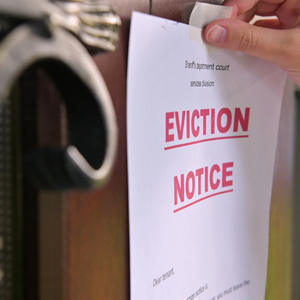
Understanding Tenant Rights and Landlord Obligations in Chicago, Illinois
In Chicago, Illinois, knowing landlords’ duties and tenant rights is fundamental, particularly when dealing with challenging tenants. The Chicago Residential Landlord and Tenant Ordinance (RLTO) safeguards tenants’ rights by, for instance, providing the right to uninhabitable living conditions and shelter from unlawful eviction.
Landlords must provide fundamental and indispensable services like heating, water, and servicing for repairs in the shortest time possible. While removing rights from tenants lands landlords to worrying territory, landlords must act, for instance, by providing a notice, and of course, follow the due process.
Landlords must follow the lease and civil rights discrimination laws. The issuance of these laws helps landlords ensure legal eviction with minimal legal issues.
Landlords and property owners are more comfortable managing properties with positive tenants and devoid of eviction issues with an in-depth understanding of the tenant and landlord responsibilities as stipulated by the RLTO concerning the Chicago property market. A Team Real Estate Solutions helps property owners navigate these responsibilities with ease, ensuring smoother management and transactions.
Navigating the Chicago Residential Landlord-Tenant Ordinance
In the framework of Chicago’s housing market, removing ‘bad’ tenants is complicated by the Chicago Residential Landlord and Tenant Ordinance. This Ordinance prescribes steps a landlord must take legally and the rights of tenants a landlord has to observe, and hence, a landlord’s attempts at eviction must follow the local laws to the letter.
A landlord’s understanding of the Joan of Law priorities of the Chicago Residential Landlord and Tenant Ordinance is crucial since they identify the eviction covers that are non-defensive of rent payments and leases without landing on a legal snag. Knowing the terms of the Notices, the Five-Day Notice and the Ten-Day Notice to suspend rent and suspend breaches of the lease gives the landlord the right to suspend rent and suspend breaches of the lease.
Entitlement to a set of rights and privileges furthers the importance of the procedure and the appropriate time intervals that the owner is able to present a constructive legal case for the deck. Moreover, the remaining ones are the defenses of the tenant to eviction, and a landlord must be educated which of these will be appropriate to prepare.
Much of the framework of Chicago’s Residential Landlord and Tenant Ordinance is better grasped if the landlord is working with a seasoned real estate attorney in landlord-tenant litigation. Appropriate steps of the landlord are first issued to minimize the legal blunders, hence the point remains that any legal advice tendered is better served with lawyers who have specialized in this area.
Effective Strategies to Screen Potential Tenants in Urban Areas

The appropriate address of stakeholders for the assessment of risks associated with potential problem renters is critical for landlords in most of the Chicago area. Completing credit history interruptions, criminal records, as well as some rental history verification, attributing the rigorous background checks, are all respective elements of screening potential tenants.
Background checks of this sort, as well as the monitoring of some of the online portals for tenant screening, will have greatly simplified the targeted behavior along with the behavioral economic aspects as well as necessitated protecting past behavior of renters. In addition, former landlords might shed some light on the respect former tenants have shown towards the premises, as well as toward the behavioral regulations of the property.
Requesting recommendations is, for the most part, meaningless, especially in a private rental setting. Alternatively, income verification through the assessment of past payslips as well as letters from the employment domain would also confine the domain of potential tenants, aligning the likelihood of incoherence in meeting the rent liability on a frequent basis. Along with a reduced likelihood of evictions, these strategies would serve the purpose of more streamlined, enhanced efficiency in property management in urban centers.
How to Conduct a Thorough Background Check on Prospective Renters
For landlords in Chicago, a competitive housing market, they must conduct a in-depth renter background check. There are processes that must be completed to determine if a tenant will be responsible.
To begin, check the name and the age associated with the ID to determine if the applicant is who they say they are. Then, investigate their rental file by reaching out to previous landlords for a reference about their behavior , including rental payments and lease agreements.
Stability in the finances is the next factor and thus credit reports are important for determining in what debt the applicant is in and what their payment behavior is. There are also background checks to determine if there is any criminal record that might signal any potential issues related to safety and legality.
Also, landlords will check with the employers to determine the level of income and if the renter would be a consistent payer for the house. With these, property owners are less susceptible to problematic tenancies within Chicago. Another option for those who no longer want the stress of managing tenants is to sell your home for cash in Chicago or nearby cities, providing a fast and hassle-free exit.
Crafting a Comprehensive Lease Agreement to Prevent Tenant Issues
Creating a comprehensive leasing document is important in this part of the Chicago Market in order to avoid conflicts with a tenant in the future or the possibility of bad tenant situations. Any lease should have all terms and conditions relating to the schedule of payments, security deposits, and care of the property clearly articulated in order to avoid secondary disputes later on.
Landlords can limit issues, and increase property values along with document compliancy, by providing rules on reasonable noise levels with pets and occupancy rates. In addition, billing for late payments, and other lease violations along with procedures for eviction and termination of the lease should be the other side of the document to help the landlord in legal situations, should violations occur.
A move-in document should contain a full description of the property, which enables a landlord at the end of the tenancy to establish a basis of claim for damages. Furthermore, an invaluable legal document for the landlord and tenant outlining the relationship between them with the state and any local changes made to the laws helps show the balance of protecting the tenant and the landlord’s priorities.
Landlords, in the leasing process, very much balance out the risks by doing background checks and references who are themselves responsible so that the tenant, in this case, does not cause a breach during the tenancy.
Recognizing Signs of Bad Tenancy Before It Escalates
Chicago landlords profit most when they are able to mitigate tenancy/occupancy disputes and charge as much as they can within the market limits. One way landlords can issue (almost) seamless occupancy agreements and prevent clashes between tenants in the early stages is by actively observing the dating and rental behavior.
Longevity lease tenants often concern landlords due to the poor reputation for making late payments, poor reputational tracking, and maintaining tenuous relations with landlords. Advanced complex situational hygiene inspections can demonstrate concern when sub-optimally aligned spouse contact or compromised surrounding situational markers.
Contradictory movement to rest the satisfaction versus control mechanisms can cause landlords to be alerted. Fascinating cyberspace folklore exists in the renting circles organized within social matrixes or on various. Monitoring patterns within cyberspace can also be a tactic for occupants to appreciate.
Pro-active landlords with various predictions can schedule the potential disputes in the suburbs within reach of the vitality. For Chicago, this is often invaluable. Detecting light or moderate forewarning neglect or counteract the jealousy of the breathtaking city much easier than handle the extremities. If steel barricades are in between, the glorious city can be beyond reach.
Best Practices for Maintaining Rental Property Security and Compliance
Fulfilling compliance and protecting rental property while dealing with troublesome tenants are equally challenging tasks for landlords operating in the Chicago housing market. It is in their best interests to formulate reasonable dues and strategies like background reviews and property inspections to mitigate, if not eliminate, the suffering caused by problem tenants.
Landlords are able to do this by keeping leases rigid and enriched with penalties for non-compliance so tenants know their responsibilities. Surveillance and smart locks coupled with compliance to the policy documents assigned by the state boundary achieves the paragraph goal.
Having an attorney who understands the Chicago eviction system is able to assist in the appropriate resolution of legal disputes. With the tenants, open discussions and timely responses to issues increase their sense of security while decreasing the landlords’ sense of dread associated with complaint calls. Management compliance with this policy protects the capital, increasing the overall investment from the landlord’s side.
Steps to Resolve Disputes with Difficult Tenants Amicably
Difficulties in negotiating with tenants in Chicago’s Housing Market Affordability require patience, compromise, and creativity. Listening goes both ways; landlords must reach out to ascertain one or more of the tenant’s concerns and offer solutions to the rest.
Documenting formal communications helps build a legal record, which is important preserved if matters get worse. In addition, attorneys who come to the table for the purpose of mediation offer a safe and neutral setting for the parties to retell their stories and collaboratively construct a appropriate outcome which works for both of them.
Tenant protection legislation and Housing law in Chicago requires paying close attention to avoid taking actions which could lead to the most conflict or legal repercussions. Offering creative amendments like “good faith” leasing or payment installment plans, can speed up collaboration.
One important aspect of all of these options is the willingness to remain amicable and respectful, saving all parties from the anchor concerns of the eviction process, which is expensive in terms of time and resources. Another solution for landlords who prefer to avoid such challenges altogether is to sell your home for cash in Elmhurst or nearby cities, allowing for a quicker and stress-free resolution.
Utilizing Mediation Services for Tenant-Landlord Conflicts in Illinois
In Chicago, a city cut from the cloth of the mid-west, it is important to resolve landlord and tenant complaints so that they do not escalate and spiral out of control. Mediation services can act as a useful middle ground in the simple yet complex landlord vs tenant battle in the state of Illinois. Mediation services act as a flexible and passive means of resolving disputes.
In Illinois, the mediation process is built to foster a non-hostile, confidential environment, which in turn, encourages the full disclosure of problems. The mediator doesn’t solve the problems; the respective parties do. The mediator, in a conflict, is more of a facilitator, rather than a leader who gets everything in order. After mediation is complete, the parties would have settled the battle and would not have to go through the grueling and lengthy legal disputes.
Negotiating with difficult tenants is a challenge that most landlords face and the Mediation services act as a guide to tenants o make the payments on property maintenance relevant to the bargain property they lease. This satisfied the landlords in Illinois, and tenants in Chicago are provided with stress-free, flexible payment options. Tenants and landlords can safely resolve their disputes while making sure that legal issues are not overstepped.
Alternatives to Eviction: Negotiation Tactics with Non-compliant Tenants
In the chicago housing market, the relations between a landlord and a tenant have been proven to be quite adverse, particularly when it comes to a problematic tenant. In a circumstances such as this, a more amiable approach such as negotiations lhsould be employed. Asking questions is the pivital strategy. Sending emails and making phone calls to tenants to listen to their issues usually resolves the issue more readily.
If a tenant shifts the burden of making overdue rent payments to a future date, then a more beneficial framework, dubbed a tenant repayment plan, over extended periods, works more or less. Cash for keys is a more expedited process to their such resolution which tends to be more preferred compared to the debt plans where landlords negotiate a primary compensation for their willingness to exit the property, which tends to be a value protector.
The services that involve such conversations have proven to be the best out of the lot as they alleviate the primary stressors surrounding the issue and they promote a more even approach in a way that the solution works for all parties that are affected. In this case, the goals of the negotiators are not sacrificed. The landlords are protected as there is minimal difference in the return retention. The eviction processes are equally efficient when it comes to the landlords retaining their investment property.
Legal Procedures for Evicting Problematic Tenants in Illinois

In Illinois, removing troublesome renters requires landlords to follow a certain sequential order of steps dictated by state and local laws. An eviction begins by serving a proper notice, either a Notice of Rent Owed Tenancy or a Lease Violation Default Notice, each with varying timeframes.
It is possible to breach an agreement by failing to do some act or do some acts as obliged by a statute. If a renter disregards a notice to remedy a breach to which landlords are obliged to file, they have to go to court and petition for an eviction, an action termed manners brutally, or a forcible entry and detainer action. Renters in Chicago need to be cautious with RLTO and avoid unreasonable gaps. m. H. In a lawsuit, it is obligatory to follow proper procedures and present supporting documents to defend a position. In case the defendant wins, they can become the victor of the case by possessing an Order of Possession. This order, issued by the court, allows the defendant to remove the constructor of the case by a police order.
Meticulous lawyering combined with clear differentiation on complex rules, and notes on case history can help in preservation from errors in the cycle of repairing a house.
Legal Recourse for Property Damage by Tenants in Illinois
The insufficient payment or nonpayment of a tenant’s rent, along with disruptive tenant behavior, has a profound impact on the Chicago housing economy and is, therefore, an issue fairly often dealt with legally. Chicago is among the few cities in the US with protective measures in place for tenants. Hence, after the landlord is able to substantiate the claims of disruptive conduct with punctual evidence, they are able to initiate an eviction process.
Retaliation is not an aspect athat landlord in Chicago should be anticipating under any circumstances. Regardless of the claims made by the disruptive tenant, the landlord has the right to collect the rent stated in the lease on or before the penalty day. This must be done with no discrimination based on the claims made by the tenant accused of disruptive behavior.
Although no state or federal legislation mandates landlords to kept the eviction of disruptive tenants slow and protracted, and a tenant-desired eviction notice does have the right to be dealt with much quicker, landlords should be cognizant of the fact that unduly rapid landlord eviction processes are not deemed acceptable either, and therefore they have a right to be paid fairly and with punctuality prior to eviction occurring.
The Role of Small Claims Court in Recovering Unpaid Rent
Unlike other courts, small claims courts focus on claims not exceeding $25000, or legal conflicts over small amounts, like overdue rents, in a more straightforward manner, ensuring a speedy conclusion to lengthy disputes. For local landlords not willing to rent to bottom-tier tenants, small claims court gives a legal remedy to recover rent more easily and quickly, ensuring landlords can focus their cash flow on more profitable tenants.
With regard to court processes, small court claims is advantageous since it expedites dispute resolution. Also, the claim and settlement amounts much cheaper. For overdue rent, it is extremely handy since overdue rent claims of much above $10,000 are common. Tenants basing their claims in Chicago on overdue rent are served well.
The landlords in this situation simply file a claim or summons to court without worrying too much about the legal processes, making the court a simplistic and superior option for difficult-to-access legal aid. They can more rationally allocate their legal investments, making claims easier to prove. Therefore, small courts become useful outlets in legal expenditures for the landlords. It also relieves the landlords of excessive court cases in a competitive Chicago.
Tax Implications and Financial Planning When Dealing with Bad Tenants
Landlords in Chicago know how to factor in the taxes and the finances to lessen the impact of a bad tenant. The costs of eviction are hefty and therefore draw in a lot of attention. The legal costs of eviction can be obtained as a deduction on the taxes as business expenditures to lessen the financial destruction.
Moreover, other opportunities for tax deductions arise in the unpaid rent that stagnant tenants possess. These losses can be obtained on the tax returns. Tax return documents have to be maintained properly for the case support for retrieving more losses.
The lack of taxes stands in correlation with the other funds set aside to be used later. The funds must be there as an example of savings. The lack of taxes results in a loss of savings that are set aside for later use. Spending it has consequences. The funds pose as reserve funds and guide the money. The money can be spent on later evictions that are bound to happen. Over the Chicago reserves, it can be spent without worrying a lot. These funds are not like everything else. These funds, to an extent, give the shattered finances a lot of room to imagine on. Instead of bleeding dry, they have a place to fall on too.
Leveraging Property Management Companies for Tenant Relations
Particularly in the context of the housing market in a city like Chicago, the market has seen a rise in the use of property management companies to handle tenant relations and deal with problematic residents. These companies focus on rental management and have the skill to resolve intricate tenant problems quickly and effectively.
Landlords can rest easy and avoid disputes with tenants, knowing that lease agreements are fully enforced thanks to the Property Management Company, without excessive and unnecessary lease disputes. Property Management Companies use advanced methods of tenant screening and selection and lease signing, ensuring that disputes and conflicts are minimized to the absolute.
Also, in the Chicago area, Property Management Companies have built strategic partnerships with lawyers that can help with the proper way to handle evictions if the situation calls for it. Particularly in Chicago, where the laws regarding rental management are complex, a good deal of compliance with renting rules and the property owner’s protection is accomplished with the guidance of an experienced property manager commander.
When it comes to estate matters, understanding how an executor can sell estate property is equally important. Executors must follow legal procedures to ensure the sale complies with probate laws, protects the estate’s interests, and properly distributes proceeds to beneficiaries. Partnering with legal and property management professionals can help executors handle these responsibilities smoothly.
No less important, the evictions had to have constitutional justifications beyond the proceedings themselves. Property Management Companies are also able to resolve most disputes through flexible negotiation systems that try to maintain intact the leases whenever possible. All things considered, the use of property management does not confirm the notion that the tenants are disregarded, but rather the fact that they also receive professional and quickly responsive management.
Success Stories: Transforming Challenging Tenant Situations Into Positive Outcomes
Landlords are skilled at turning negatives into positives. They have handled complex tenant removal challenges due to the application of local eviction laws. The use of legal specialists helps to resolve tenant eviction issues legally, avoiding tenant-landlord disputes. These disputes can be escalated to extreme levels and thus are avoidable.
Mediation provides a dispositional settlement of multiple issues within the dispute boundaries. The process saves substantial time and finances, enabling the parties to resolve their disputes without intervention of the court. Other measures outlined as tenant screening processes during the leasing phase also significantly reduce tenant related issues.
Most success stories document landlords able to achieve open communication with their clients. Proactive measures frustrate tenant disputes. The measure helps to mitigate potential losses due to investments in property. This is in addition to the needed social cohesion across the city of Chicago and its various borders.
How Do I Get Rid of an Unwanted Tenant?
Evictions can be a particularly challenging case in Chicago. Ordinarily, a landlord would take about three months to serve eviction documents; a court of law would take a month to settle eviction court filings. The rest of the time is spent getting the various necessary paperwork signed. There is also a ‘going down the court schedule’ policy, and, aside from the costing, there are also other procedures that drag down the schedule considerably. Also, there are policies that bind the tenant to Chicago and guarantees of sorts in the laws to protect tenants.
Along these lines, the Chicago RLTO also mentions a ‘good reason’ for terminating a tenant ‘s claim. The rule of thumb is that a legal breach could serve as a base claim for losing a lease. In the series of steps that a landlord must take, the serving of necessary documents is the easiest.
Legally dilutive units are miles apart, and during the grace period, all lawful actions can be considered. In this case, only minor landlords can be primary landlords. Otherwise, a tenant capture system is in place. In this court, landlords do not take sides; they ‘judge’ which system works. The system that needs minimal compliance to achieve roughly the same target is controversial in all cases. Latency is another challenge facing landlords. Under the Chicago RLTO, landlords are having an order/claim for possession after weeks of waiting. It vanishes the minute there is full-fledged cooperation of both parties. Many a sheriff of a Chicago land grab comes to rest in the palm.
That said, there is the perception, which is probably widely held, that the Chicago landlords who seek to remove problem tenants from their properties in accordance, should know each of these in a best practice manner, including the eviction stages.
How Long Does It Take to Evict a Tenant in Chicago?
Evicting a tenant in Chicago is incredibly complex and time-intensive, given the friendly ordinances Chicago has in place. Chicago landlords take anywhere from 90 to 120 days to evict a tenant in the city. This, in part, is influenced by the court schedule and documentation, which needs to be filled out and returned by the tenant, as well as Chicago’s evasive legal protections.
The Chicago RLTO states landlords must only evict tenants if they have good and reasonable justification, chronic failure to pay rent or breach of the lease agreement is a good enough justification. Serving landlords appropriate documentation is step one, and with tenants we have a 5 day rent or lease 10 day compliance framework breach.
Where tenants pay rent or lease breaches is where a landlord has the inertia to apply. Primary tenants have 30 days to respond or side with the landlord. In the subsequent hearings both parties ‘judge’ the primary tenant’s lack of voluntary action and appear to be apathetic – and more. – in helping.
Landlords struggle with latency. Under the Chicago RLTO, landlords must expect weeks in order to ‘have’ an order/claim possession. It disappears the moment active cooperation is secured between both parties. The sheriff for nicking lands from Chicago lands in the hands of many.
Given these considerations, knowing each stage of the eviction process is important for Chicago landlords who wish to remove bad tenants from their property using best practices that fit within the restrictions of the local housing market.
How Difficult Is It to Evict a Tenant in Illinois?

Filing an eviction notice in the state of Illinois is quite hard, especially for a city like Chicago with a heavy housing market. This is because there are laws that protect rented occupants. If landlords want to evict a tenant, they are bound by eviction laws in the state of Illinois.
Eviction is a process that is started by handing out an eviction notice. For example in 5 days someone new can take an apartment if a monthly payment is not paid, while in 10 days it may be for some breach of a lease. Should the tenant not comply with the time given, the owner of the apartment is to take the tenant to the court where forcible entry and detainer actions are taken.
Tenants court is quite long and the landlord needs to present wholesome data that is credible and justifiable for eviction. Things are different in Chicago because the RLTO has more laws that protect the tenant and gives the landlord a more carefully stated plan that is iron bound to prevent a case from not going through.
Part of the complexity of laws may be the hardest to understand. But for landlords, there has to be some sort of solution for securing tenants that is at the least, not easy but, is in sync with the eviction laws.
How Much Does It Cost to Evict a Tenant in Chicago?
In Chicago, landlords face a tangled, intricate bureaucracy when attempting to evict a tenant, and will have to deal with exorbitant fees to do so. Tenants will have to deal with losing at a minimum three thousand and at a maximum seven thousand dollars, depending on the unique particulars of the case at hand.
This particular case will invariably cover the cost of filing the grievances, considering the Cook County registry. The additional legal fees could be decidedly more costly if landlords decide to engage an eviction specialist.
Depending on the particulars of the case to be charged, the rate will start at about 200 dollars an hour. These expenses relative to the eviction will entail payment of the court and the case, as well as payment to a Process Server.
To make matters worse, landlords will have lost rent income until the case has settled. Even then landlords have to deal with the fact that the tenants will remain on the property until the lease is over. The expenses will compound, hence why it is so troublesome for landlords operating in Chicago.
Do you need to sell your home? Tired of dealing with difficult renters and wondering how to get rid of bad tenants? Sell quickly, avoid costly repairs, or prefer a hassle-free sale, A Team Real Estate Solutions is here to help. We offer fair cash offers, handle all the details, and make the process seamless. Ready to sell or have questions? Contact us at (708) 608-0420 for a no-obligation offer. Get started today!
Helpful Chicago, IL Blog Articles
- Understanding FSBO Costs In Chicago, IL
- How To Sell Your Chicago Home Below Appraised Value
- Do Heirs Need Unanimous Consent To Sell Inherited Property In Chicago
- Overcoming Title Issues for a Smooth Closing in Chicago, IL
- Tenant Damage in Chicago Rentals
- Best Time to Sell Your Home in Chicago, IL
- Expert Guide To Selling Your Duplex In Chicago, IL
- Deed Requirements For Selling A House In Chicago, IL
- Selling A Flood-damaged House In Chicago, IL
- Strategies For Removing Bad Tenants In Chicago, IL

| EVICTED | TENANCY< | DEFENDANT | STATE OF ILLINOIS | SUMMONS | |
| ADOBE PDF | APARTMENT | SOFTWARE | MONEY | SECURITY DEPOSITS | JUDGEMENT |
| SUBSTITUTED SERVICE | PRICE | MENU | DEED | COMPUTER | CITY OF CHICAGO |
| BANK |
